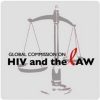In The Face of Fear: the Criminalization of HIV Transmission
Published on Friday, 15 May 2015 11:51Disclosing HIV-positive status is never easy, no matter how many times you do it. I know many others who share my fears about disclosure – Will I be rejected? Will I be judged? Will I be the target of anger or even violence?
With more and more stories about the criminalization of HIV transmission, most recently the case of Michael Johnson in Missouri, my fears are even more compounded.
Johnson, who is black and a former college wrestler, was found guilty yesterday of transmitting HIV to one person and attempting to expose for others to the virus without having told them that he was living with HIV before having sex with them. Five of Johnson’s six accusers appear to be white; one is black.
Even though I practice safer sex, even though my viral load is undetectable, even though I make it a habit to disclose my status to my partners early in a relationship, what if someone accuses me of giving them HIV and says I didn’t disclose? What recourse do I have?
Criminalizing HIV non-disclosure takes an overly simplified legal approach to an exceedingly complex public health and social justice issue – the prevention of HIV.
While Johnson was found guilty, his trial did nothing to stop HIV transmission, stigmatized people living with and at risk of HIV and undermined proven HIV prevention strategies and programs. It sent the message that “Hey, why should I get tested. Not knowing means I’m not at risk of a jail sentence if someone lies about me in the future.” It sent the dangerous message that ignorance is bliss — when in reality, ignorance puts a person living with HIV at risk of AIDS and puts others at risk of acquiring HIV.
Recently, I have joined The Counter Narrative and 89 other Black gay and bisexual men in signing an open letter to Johnson.
Charles Stephens, founder of The Counter Narrative project, says “there has been a lot of conversation around the direction of the LGBT movement after marriage. What we see happening with Michael Johnson is a policy failure and more importantly a moral failure of our society. He is on trial for being Black and gay and HIV positive. It’s important that all LGBTQ advocates understand the vital nature of addressing the needs of this vulnerable population.”
The letter states, “There are less and less spaces dedicated to Black gay men. And our bodies are being beaten, policed, and pushed into prisons. Yet, we remain steadfast in the belief that our bodies, desires, intimate relationships and communities are not criminal. We are loving, living, and worthy Black people.”
After being in solitary confinement since October 2013, Johnson’s trial began Monday, May 11 with jury selection. Writer Steven Thrasher and AIDS activist Aaron Laxton provided updates on the trial via Twitter (@thrasherxy and @aaronlaxton). At the time of his arrest, Johnson was a student and star wrestler at Lindenwood University in St. Charles, a suburb of St. Louis, Missouri and his education and wrestling career may now be over for good.
This could have been me. This could have been anyone living with HIV.
Thirty-three states have “laws explicitly focused on persons living with HIV,” according to the federal Centers for Disease Control and Prevention. Many of these laws were passed when there was no effective treatment for HIV and are based on false information about HIV transmission. Some states criminalize spitting by an person living with HIV, for example, even though it has been known for decades that saliva cannot transmit HIV.
Today, taking antiretroviral drugs has been shown to reduce the risk of transmitting HIV by more than 90 percent. And people without HIV share responsibility in ensuring they are taking preventative measures — for example, by practicing safer sex and by taking PrEP.
The facts are apparent — HIV criminalization laws and their enforcement are informed by homophobia, racism and stigma, not science.
Source: Human Rights Campaign Blog
